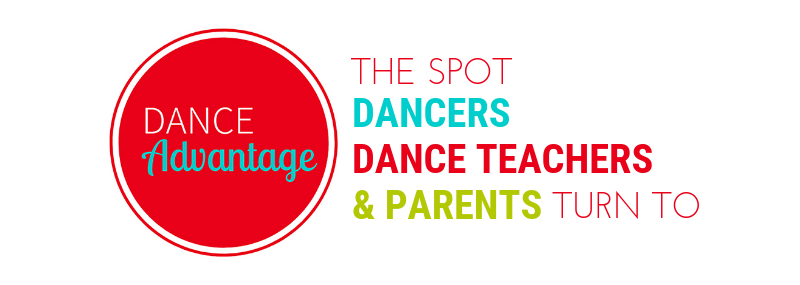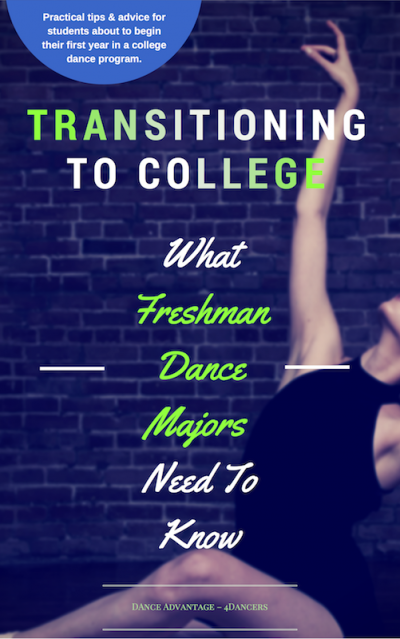Today’s guest post is courtesy Vicki Nelson. She and I connected over blogging but discovered a shared appreciation for dance. In addition to her professional experience within higher education, Vicki is the parent of two post-college daughters and one daughter currently in college. She studied dance for many years herself and enjoyed being a dance mom for 18 years. With this article, she’s put into words what a credit dance education, and arguably the arts in general, can be to young adults entering college.
Dance Education May Lead to College Success
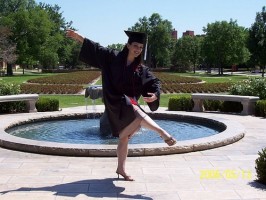
As the mother of three daughters, I have spent 18 years as a dance mom. My daughters loved to dance. Each girl took ballet and jazz and one daughter added tap to the mix. We spent a lot of time at the dance studio! Two daughters have now graduated from college and the third is not far behind. No one dances any more.
Was it all a waste of time, money and energy? Of course not! My girls had fun, and learned to love and appreciate the arts. They gained a bit of grace and became more comfortable with their bodies. They made new friends. They had a great role model in their teacher. None of us regrets a minute of the time spent dancing.
However, I’ve come to realize that there are even more important benefits of growing up studying dance once students head off to college.
Qualities Successful Dancers and Students Share
As a college professor I work with college students every day. I see the qualities that successful students have, and I see the qualities that the less successful students lack. I believe that the dance education that my daughters received helped to reinforce many of the important qualities that made them successful in college and will help them succeed in their lives. I’d like to suggest ten of those qualities here.
-
Time Management
This may be the single most important quality necessary for success in college. Students who know how to plan ahead, organize, and balance their lives are the students who succeed. Children who grow up adding dance to their weekly activities, especially those who may take several classes each week, must learn to manage their time. They learn to balance, to prioritize, to multitask, to make choices and sacrifices. These lessons will definitely give them an advantage when they get to college.
-
Discipline
Anyone who has ever taken a dance class knows that it requires discipline. It requires discipline to show up to class, to control your body, to practice, to focus on the teacher. It requires discipline to give up other things to make room in your life for what is important to you. Students learn, and are able to practice, the discipline of making and following through with choices. When faced with choices in college, these students will be prepared.
-
Passion
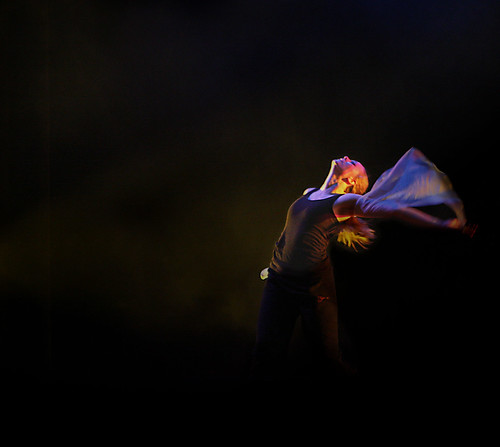
Photo by ssanyal Students who are involved in a dance program have the opportunity to pursue something that they love. In following their passion, they experience the benefits and the satisfaction that comes from following your heart. Hopefully, when they get to college, they will follow a passion for something – whether or not it is dance. They will commit to something simply because they love it – not necessarily because of a class, or a grade, or a career move. Loving something that you do is important in keeping balance in your life.
-
Commitment
Dance students learn that doing anything well requires a commitment. That commitment takes time, energy, sacrifice, and follow-through. Dancers learn to stick with something. You cannot become a dancer over night. It takes time to develop as a dancer. College students, too, need to recognize that some things take time to develop and require a commitment of time, energy and sacrifice. In this often commitment-phobic age, students who know the value of commitment will make a difference – for themselves and for others.
-
Hard work
Dance is hard work. As much fun as it may be, as fulfilling and satisfying as it may be, as good as it is for the soul, it is hard work. Dancers learn how to put in the hard work to achieve something. They are not afraid of doing something difficult. They know that they need to tackle a difficult task (or step, or routine) and break it down and work at it. Many college students worry about hard – hard courses, hard instructors, hard majors. Students who are willing, and able, and unafraid, to take on challenges achieve more.
-
Technique
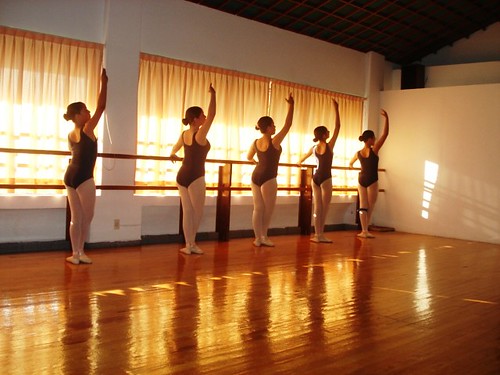
Photo by bombarosa Dancers spend much of their time learning to perfect, or at least improve, their technique. They know from experience that doing something well often happens because of all of the small details. A good dancer knows that a beautiful dance grows from good technique. Details matter. Details add up. Details take hard work. Paying attention to the smallest of details can make the difference.
-
Skill-building
Dancers understand that there is always room for improvement. No matter how long you have been dancing, no matter how good you are, no matter how clearly you understand a step or how instinctive a move has become, there is always room for improvement. Dancers learn that you never stop growing in your ability, that there is always somewhere to grow. In college, they will continue to strive for something more.
-
Criticism
Dance students understand that criticism is not a bad word. They understand that true criticism means helping someone find the best in themselves by giving them feedback. They understand that criticism is good and that good criticism helps them grow. They understand, because they have heard it being given for years, how to give good criticism to others. College students who are able to receive – and use – criticism will gain more from others. College students who know how to constructively criticize others – positively, specifically, non-emotionally – will be able to help others.
-
Creativity
Dance is not technique. Dance is not skill. Dance is not discipline or hard work. Although all of those qualities are required, dance is ultimately a creative work of art. Dance students begin to understand that they have something within themselves that they bring to a dance. Dance students begin to understand that dance is greater than they are. It is the ultimate unity of the music, the choreography, the technique and the soul of the dancer that creates the dance. Dancers learn to tap that creative energy within themselves – and they will bring that creativity to all that they do.
-
Self Investment
Ultimately, dancers learn to throw themselves completely into whatever they do. They blend the physical, the mental, the emotional, and the spiritual into a greater whole. Students who head off to college understanding, and having experienced, this totality of themselves will be better able to seek and maintain a balance in their lives.
My daughters no longer dance – although I continue to hope that they may return to it some day – but they have reaped countless benefits from their dance experience. The life lessons which they have gained gave them a head start in college – and in life. Current dance students may not yet realize that each time they lace up their pointe shoe, or take their place at the barre, or practice just one more pirouette, they are preparing themselves for life.
Vicki Nelson currently teaches communication at a small liberal arts college and has more than 25 years of experience in higher education as a teacher, academic advisor and administrator. She founded College Parent Central, a website designed to help parents navigate through the college years, to give parents information about how to be productively involved in their student’s college life while finding ways to allow their student to gain independence. Visit Vicki’s website at www.collegeparentcentral.com or contact her at vnelson@collegeparentcentral.com.
Transitioning To College: What Freshman Dance Majors Need To Know is a college preparation guide for first-year students written specifically for dancers. It provides a snapshot of college life, essential information on what to expect in a dance program of study, and scores of tips and tricks for staying healthy and happy.
The E-book Helps You:
Own Your Education
What college freshman can expect to encounter freshman year in terms of dance technique and training, as well as overall scholastics.
Study Smarter, Not Harder
Manage Stress
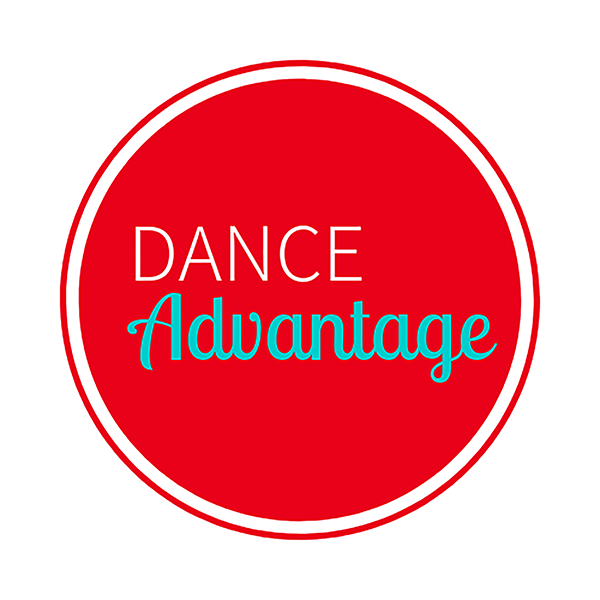
Dance Advantage welcomes guest posts from other dance teachers, students, parents, professionals, or those knowledgeable in related fields. If you are interested in having your article published at Dance Advantage, please see the following info on submitting a guest post. Read posts from guest contributors.
